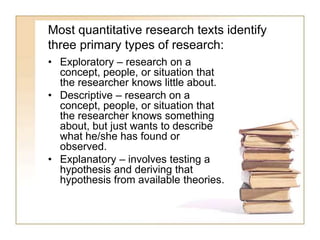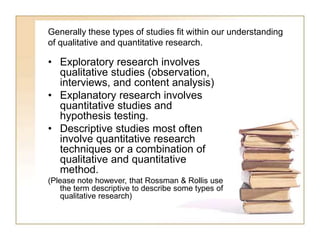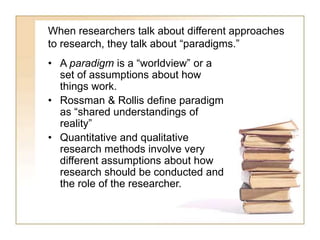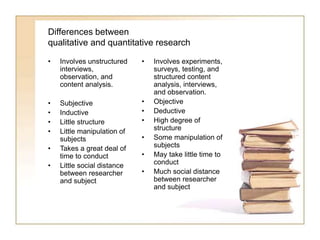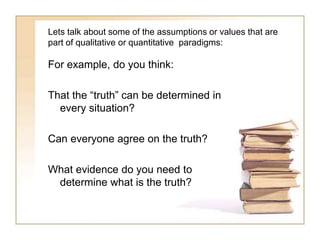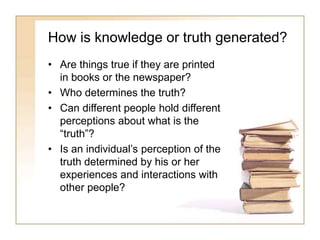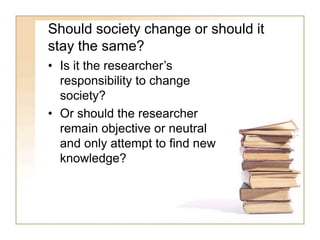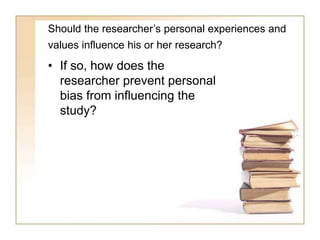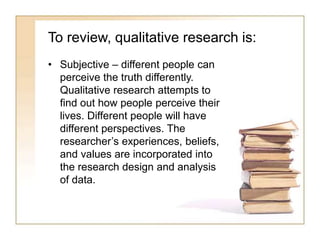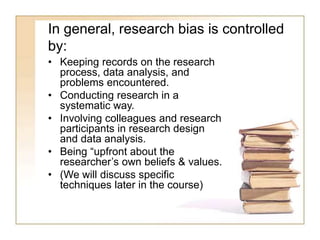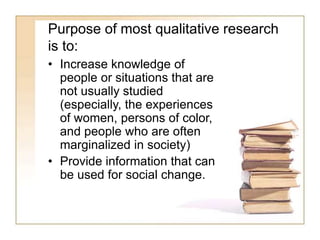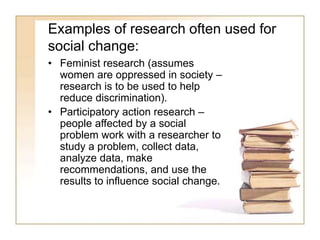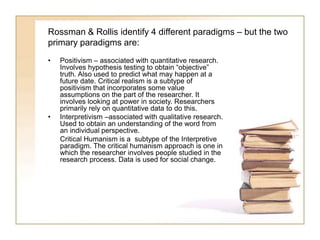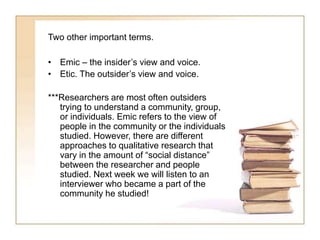This document discusses different types of research paradigms and concepts in qualitative research. It identifies three primary types of research: exploratory, descriptive, and explanatory. Exploratory research involves qualitative studies like observations and interviews, while explanatory research involves quantitative studies and hypothesis testing. Descriptive studies can use quantitative or qualitative methods. The document also discusses the differences between qualitative and quantitative research in terms of structure, role of the researcher, and purpose. Qualitative research is subjective and aims to understand different perspectives, while quantitative research seeks objective truths through hypothesis testing. The two main paradigms are positivism for quantitative research and interpretivism for qualitative research.

